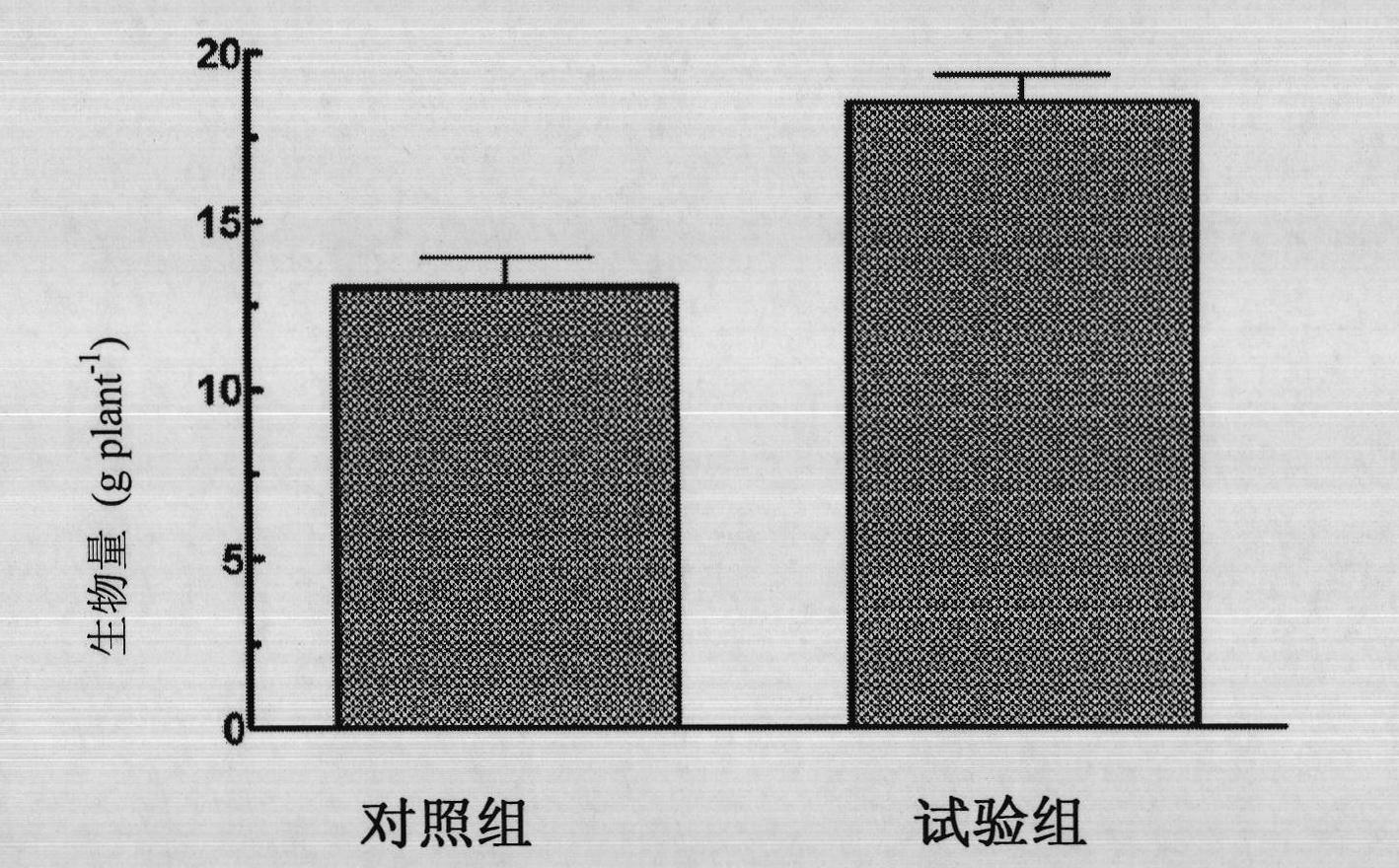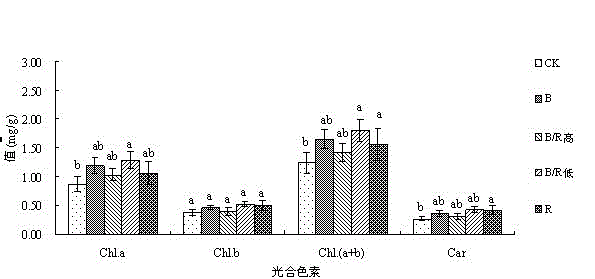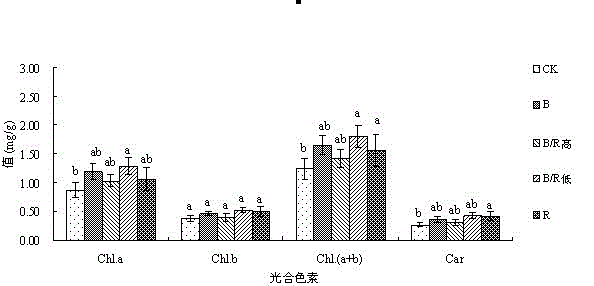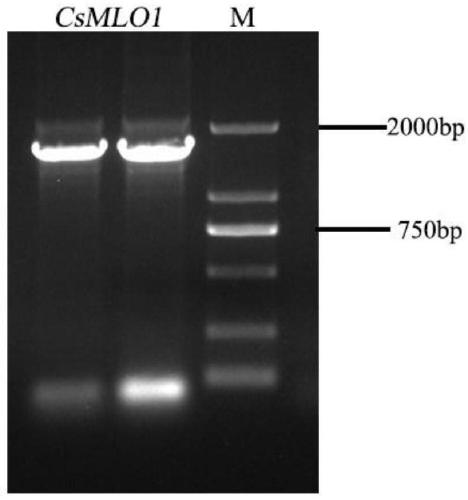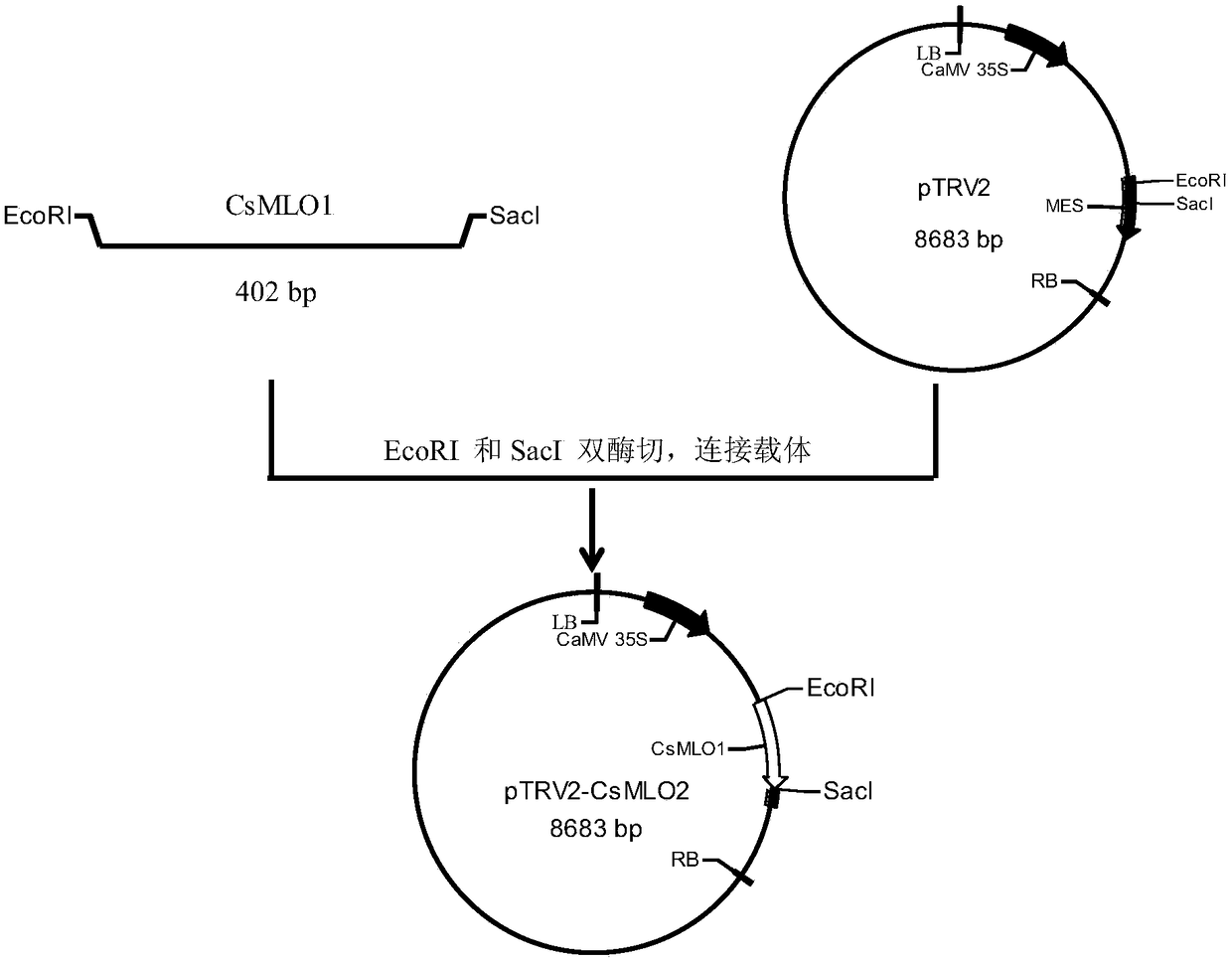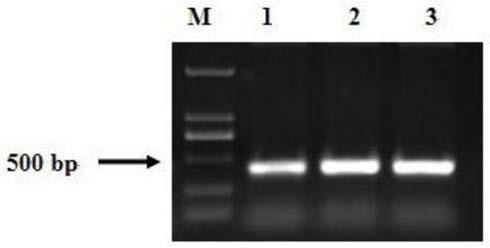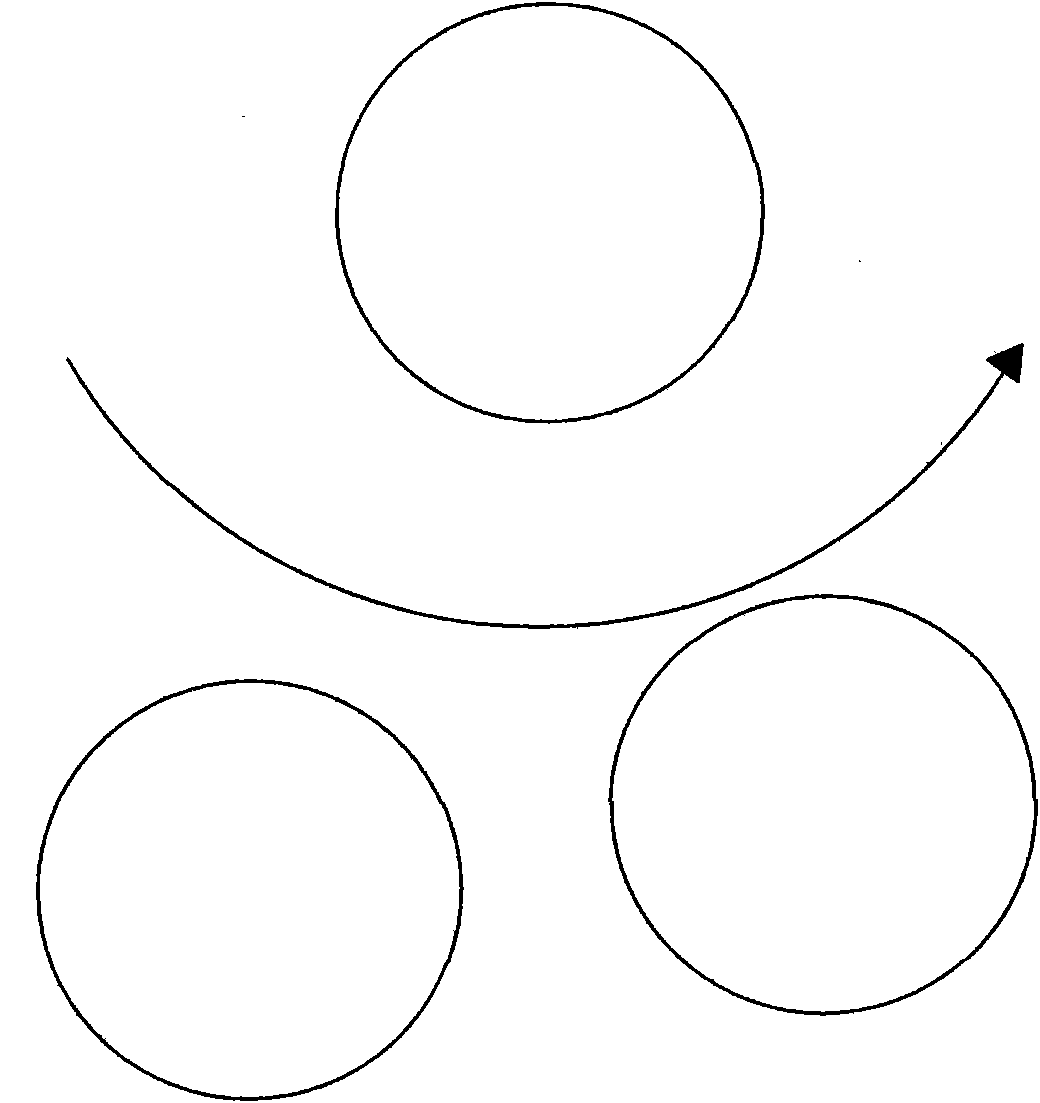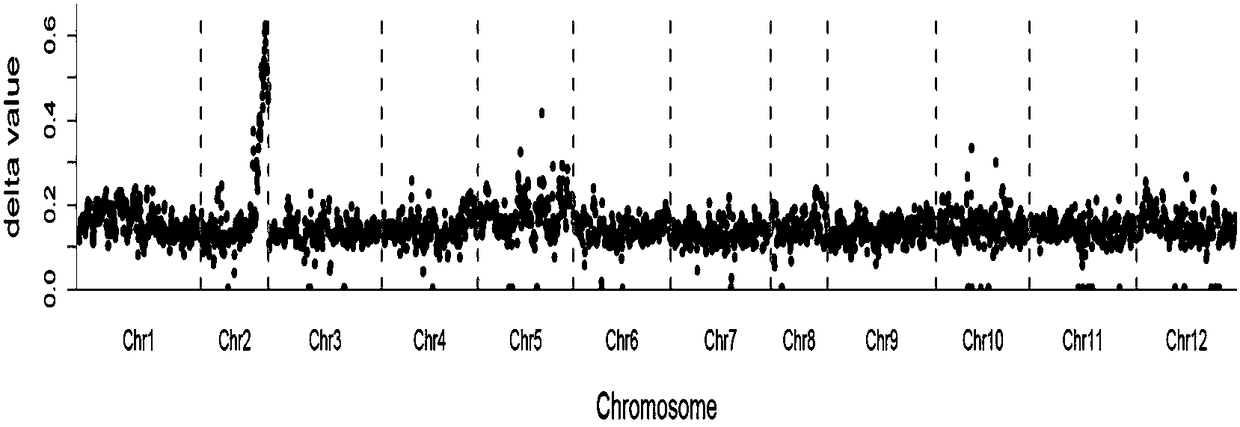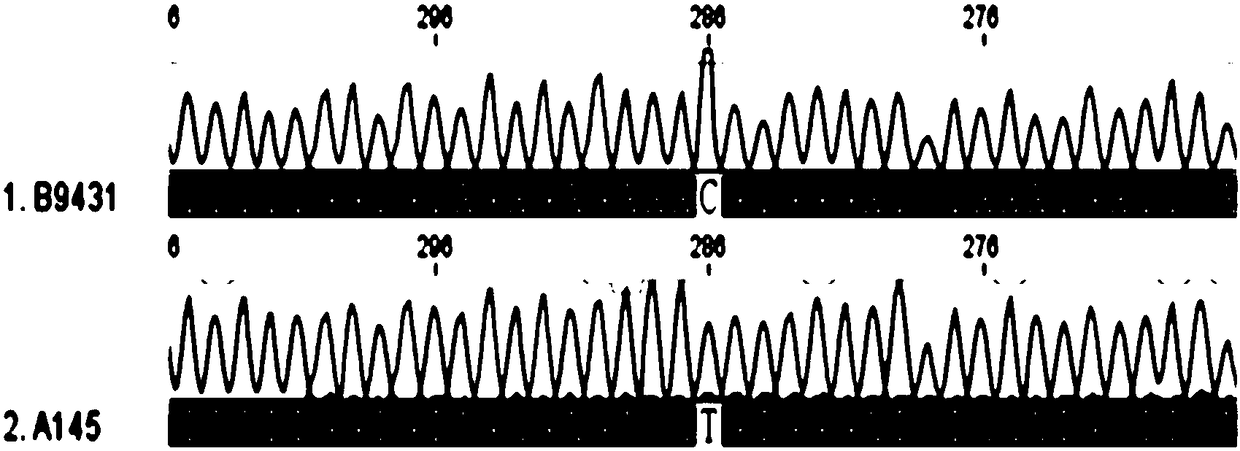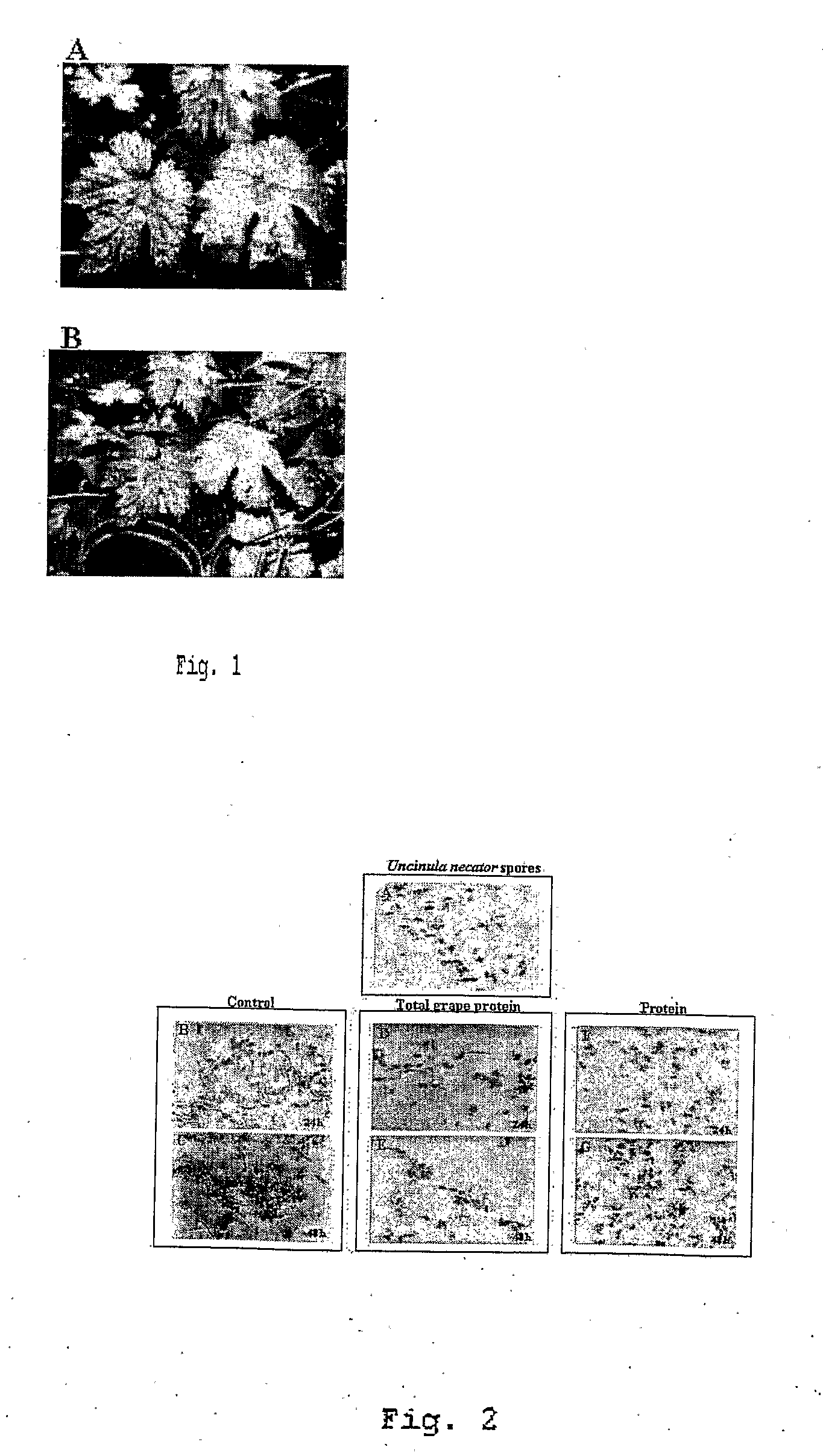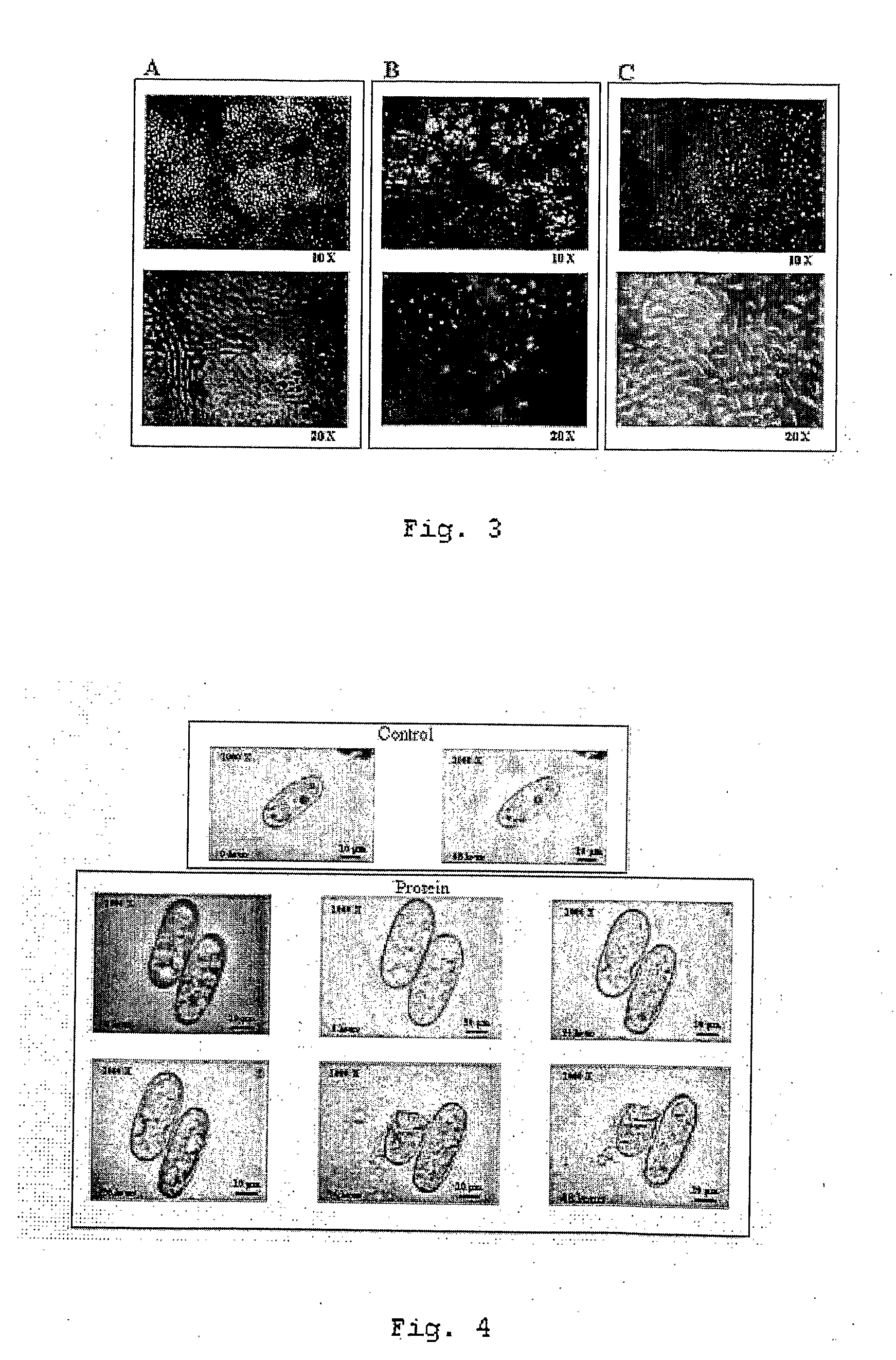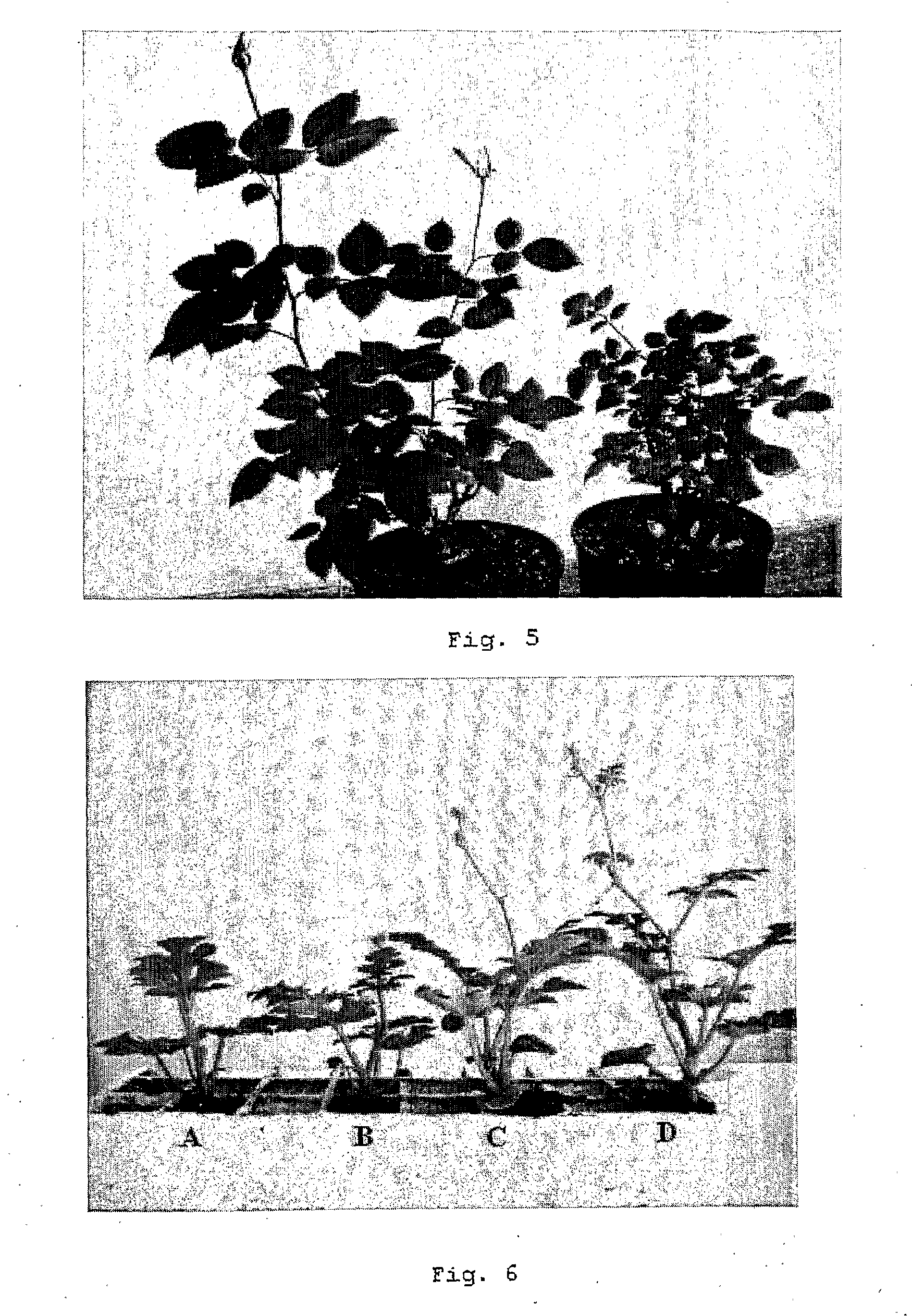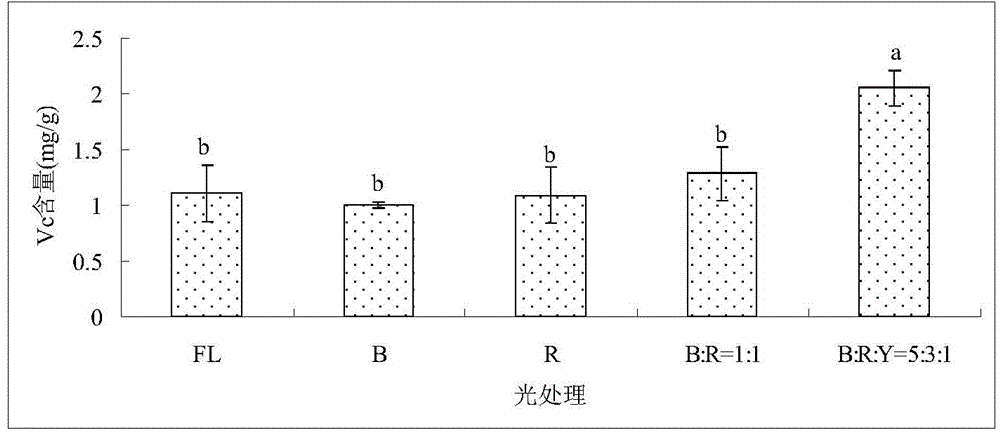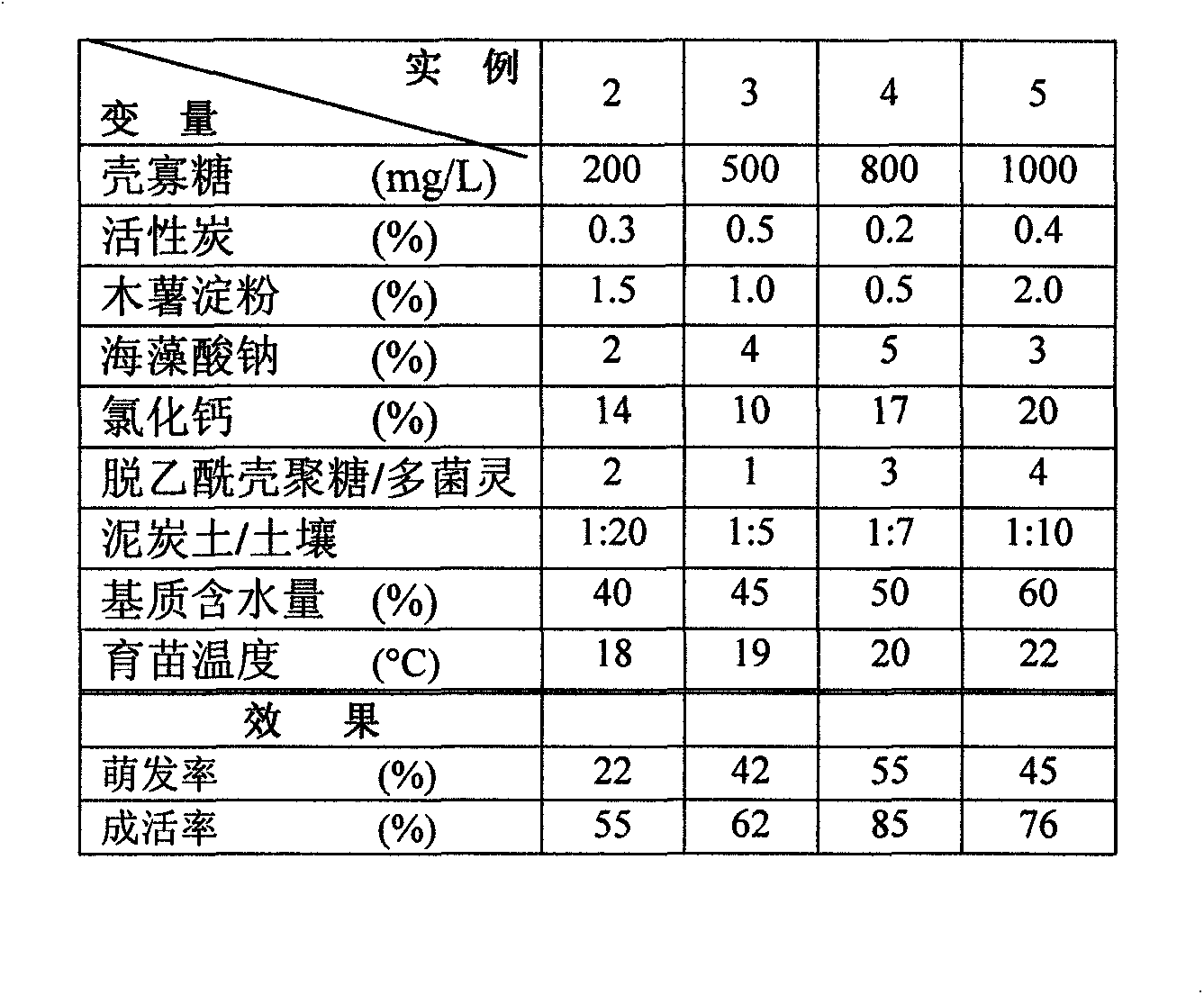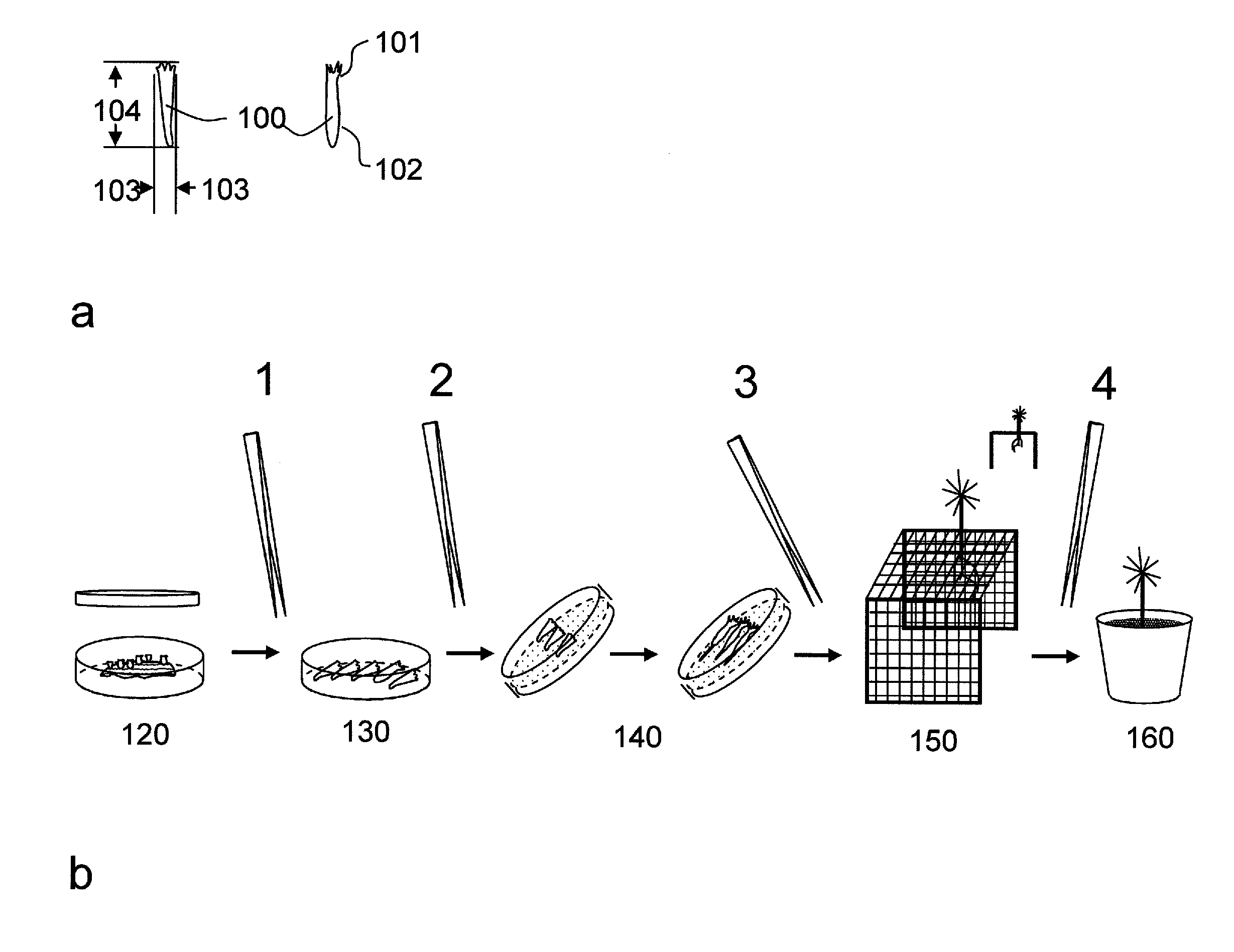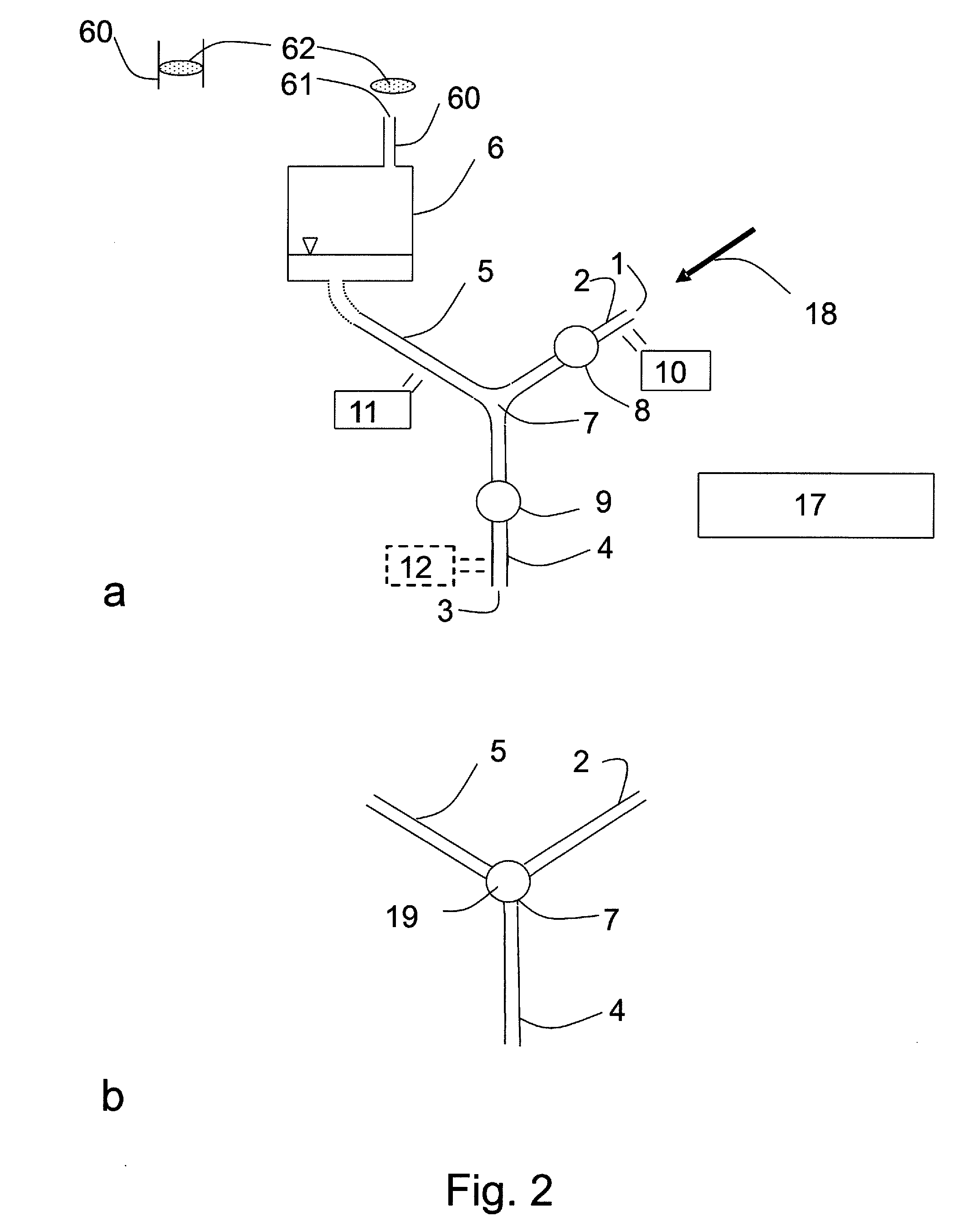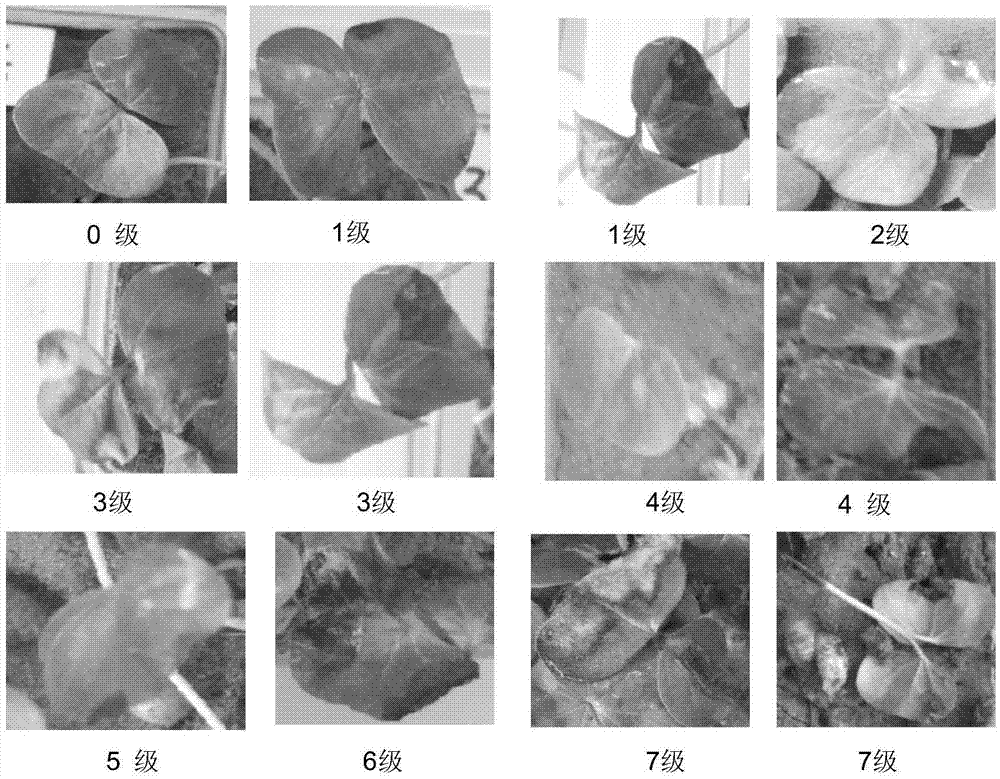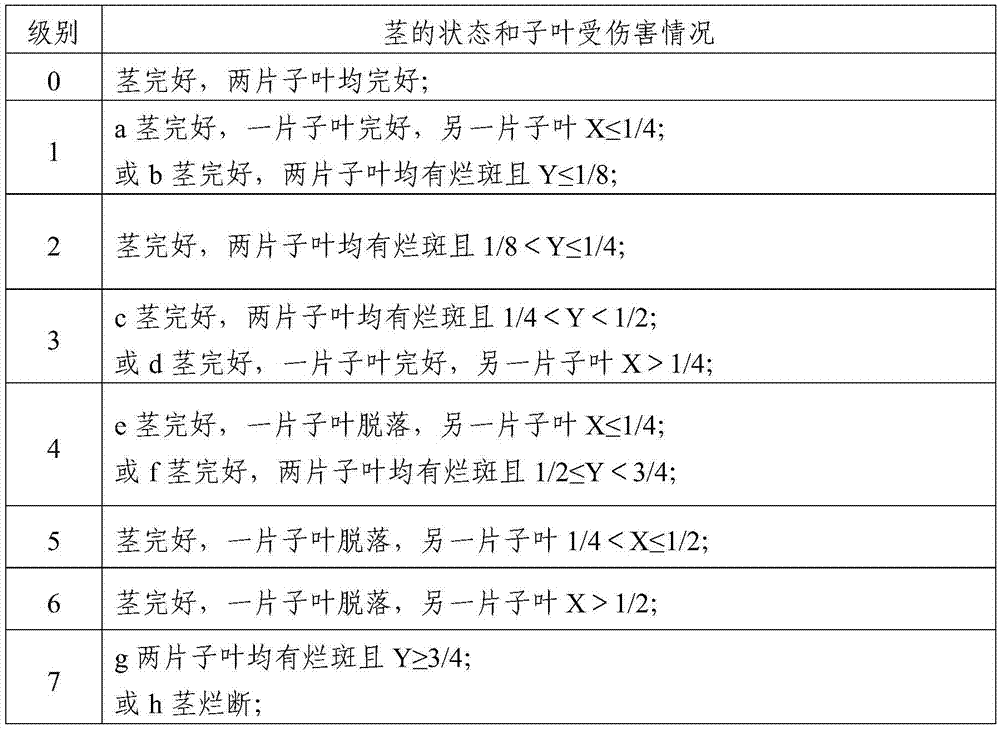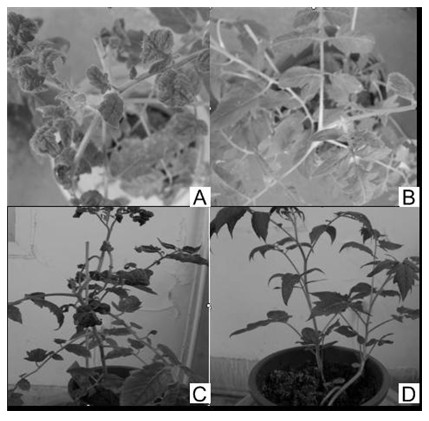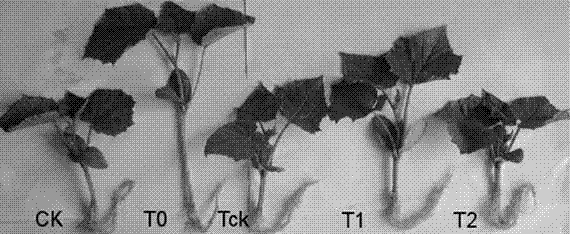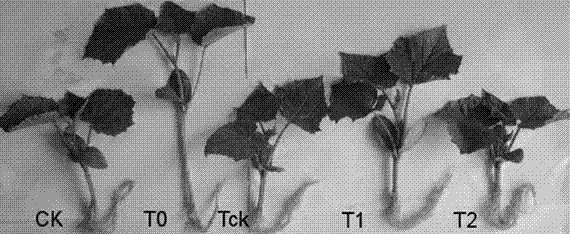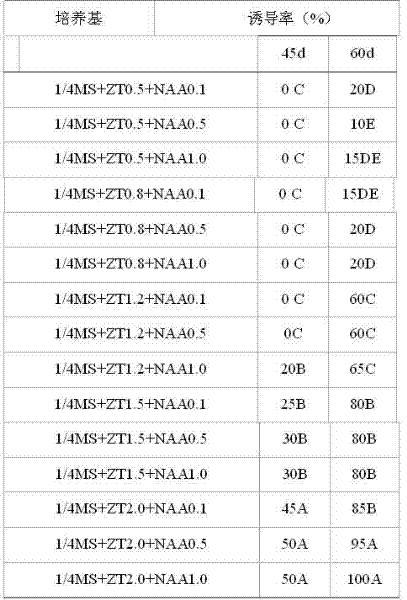Patents
Literature
Hiro is an intelligent assistant for R&D personnel, combined with Patent DNA, to facilitate innovative research.
627 results about "Cotyledon" patented technology
Efficacy Topic
Property
Owner
Technical Advancement
Application Domain
Technology Topic
Technology Field Word
Patent Country/Region
Patent Type
Patent Status
Application Year
Inventor
A cotyledon (/ˌkɒtɪˈliːdən/; "seed leaf" from Latin cotyledon, from Greek: κοτυληδών kotylēdōn, gen.: κοτυληδόνος kotylēdonos, from κοτύλη kotýlē "cup, bowl") is a significant part of the embryo within the seed of a plant, and is defined as "the embryonic leaf in seed-bearing plants, one or more of which are the first to appear from a germinating seed." The number of cotyledons present is one characteristic used by botanists to classify the flowering plants (angiosperms). Species with one cotyledon are called monocotyledonous ("monocots"). Plants with two embryonic leaves are termed dicotyledonous ("dicots").
Method for regenerating plant strain using soybean cotyledonary node
InactiveCN101176427AReduce humidityIncrease humidityCultivating equipmentsHorticulture methodsOrganogenesisHealth production
The invention relates to a method using the cotyledon node of soybeans as explant to perform soybean organogenesis and plant regeneration, belonging to the technical field of agricultural production. The invention is characterized in that based on the traditional tissue culture, the cotyledon node of soybeans is used as explant to perfect the regeneration system of organogenesis means. The invention has the advantages that based on the selection of effective disinfection technology for soybean seeds, the improvement and the optimization of various medium compositions is outstanding; through the verification of the tissue culture of conventional soybean varieties, the induction, the elongation and the rooting of multiple shoot are effectively promoted; the quality of aseptic seedlings and the differentiation rate of the multiple shoot are improved; the organogenesis and plant regeneration process of the cotyledon node of majority varieties are perfectly realized; solid technical support is provided for the genetic transformation and the molecular improvement of soybeans; and the invention has important practical significance to the effective breeding and health production of the soybeans in China.
Owner:NORTHEAST INST OF GEOGRAPHY & AGRIECOLOGY C A S
Method for grafting watermelons and cultivating grafted seedlings
The invention discloses a method for grafting watermelons and cultivating grafted seedlings. The method comprises the following steps of: soaking seeds and accelerating germination: soaking stock seeds and scion seeds with clear water and carrying out moisturizing and germination acceleration for a certain time by a sterilizer; sowing and growing seedlings: horizontally placing and carrying out dibble seeding on the stock seeds subjected to germination acceleration in a nutrition cup, carrying out dibble seeding the scion seeds into a seedling-raising disk and cultivating the scion seeds in a greenhouse, wherein the scion seeds are seeded later than the stock seeds for 7-10 days; grafting: when a first rough leaf of the stock seeds is fully extended and two leaves of the scion seeds do not horizontally extend, grafting scions by adopting a top piece inserting method; and cultivating the grafted seedlings, strictly maintaining certain cultivation conditions and controlling insect pests at regular period. According to the method disclosed by the invention, the grafting survival rate is improved to be over 90 percent. In addition, nutrient soil is prepared from mud in a fish pond as a basic raw material, so that growing quality and grafting survival rate of the stock seedlings, the scion seedlings and the grafted seedlings are effectively improved.
Owner:北海市种子管理站
Method for grafting of cucumber on black-seed pumpkin in Yunnan
The invention discloses a method for grafting of a cucumber on a black-seed pumpkin in Yunnan, belonging to the field of crop breeding. According to the method, the black-seed pumpkin in Yunnan is used as a stock, a growing point and axillary buds on two sides of the stock are removed by a blade, a special bamboo stick of 0.5cm is vertically inserted into the center of the growing point and is maintained in a stem, a cucumber seedling is taken, the under-cotyledon part is removed by obliquely cutting at 0.4-0.6cm under the cotyledon of the cucumber seedling for an angle of 25-30 degrees, the bamboo stick is taken out, the cucumber seedling is inserted into a grafting hole, and the cotyledon of the cucumber and the cotyledon of the stock are arranged in a cross-shaped vertical shape; and after grafting is performed, moisture is kept for 3-5 days in an enclosed environment in a greenhouse, the temperature is maintained at 25-30 DEG C at daytime and 18-20 DEG C at night for seedling hardening, then ventilation is performed gradually, and complete ventilation is performed on the ninth or tenth day. The black-seed pumpkin in Yunnan is used as the stock in the method, diseases which can easily occur to certain cucumber seedlings can be eliminated completely, and the stress tolerance and disease resistance can be better improved. Since direct insertion is adopted for grafting, the rate of incidence of adventive roots is very low, and the survival rate of grafted seedlings can be guaranteed to be up to 98 percent.
Owner:句容市旺华大棚蔬菜专业合作社
Plant growth regulator composition and application thereof
InactiveCN101953337APromote growthPromote accumulationBiocidePlant growth regulatorsTime rangeGrowth plant
The invention discloses a plant growth regulator composition and application thereof. The composition uses 24-epibrassinolide as an active ingredient. The composition comprises the 24-epibrassinolide, ethanol and water. The used amount ratio of the 24-epibrassinolide to the ethanol to the water is 1-25mg: 0.2-1ml: 100L, preferably 5mg: 0.5ml: 100L. The invention provides a method for promoting cucumber growth under a slat stress condition, which comprises a step of spraying the plant growth regulator composition on the surfaces of cucumber plants, wherein the spraying is performed once a weak; the total spraying times range from 1 to 12; the spraying is executed for the first time when two cotyledons of a cucumber plant are unfolded completely; and the spraying parts are the leaf surfacesof the cucumber plants. The plant growth regulator composition provided by the invention can improve the growth of the cucumber under salt stress, promote the ground and underground accumulation of biomass liveweight and guarantee the cucumber production in salinized regions.
Owner:INST OF BOTANY CHINESE ACAD OF SCI
Seedling cultivation method for strengthening growth vigor of plants by supplementing light
InactiveCN105475009AGrow fastImprove the lighting environmentSaving energy measuresAgriculture gas emission reductionUltimate tensile strengthSeed treatment
The invention particularly relates to a seedling cultivation method for strengthening growth vigor of plants by supplementing light. The method comprises steps as follows: step one, seed treatment: seeds are soaked in tap water or Vitacat, and seed germination is promoted; step two, sowing: a sponge block is put in a nursery seedling plate and pressed uniformly for sufficient water absorption, and the soaked seeds are put in the sponge block; step three, management before germination: the nursery seedling plate is put in a dark and lightless environment, water is sprayed to the nursery seedling plate every day, and the nursery seedling plate is kept moist until the seeds germinate; step four, management after germination: after germination, the nursery seedling plate is placed under LED light for light supplementing, and the LED light is obtained through an LED light source with an adjustable spectrum; when the seeds just germinate, the ratio of red light to blue light of the LED light source is adjusted to be 3:1, and the light supplementing intensity is adjusted to 3,000 lux; after cotyledon is expanded, the ratio of the red light to yellow light of the LED light source is adjusted to be 1:2, and the light supplementing intensity is adjusted to 13,000 lux. The light intensity and the spectrum are adjusted according to different light required by seedlings in different growth stages, the growth vigor is strengthened, and the seedling cultivation time is shortened.
Owner:QIANHAN BIOSUN BIO TECH SHENZHEN CO LTD
Tissue culturing method for licorice adventitious root
InactiveCN1653886AHigh yield and relatively stableFast growth ratePlant tissue cultureHorticulture methodsKininBud
The present invention discloses the process of culturing adventitious root tissue of licorice, and belongs to the tissue culture of licorice as one kind of Chinese medicinal materials. The process of the present invention includes soaking licorice seed in solution with ethanol in 70-75 vol% and sodium hypochlorite in 2 vol% to sterilize and planting in MS culture medium to induce bacteria-free bud; inoculating the cut cotyledon and bud in MS culture medium containing different plant growth regulator to induce callus; transferring the callus growing for 20 days in MS culture medium with indolebutyric acid and kinin to induce adventitious root; and finally transferring the adventitious root to liquid culture medium containing the same plant growth regulator for fast growth. The present invention has simple process, high inducing rate, fast adventitious root proliferating speed and other features.
Owner:TIANJIN UNIV
Easy and fast seedling method for hybrid pear seeds
InactiveCN102217484AImprove development qualityExtended shelf lifeCultivating equipmentsHorticulturePEARAdult stage
The invention discloses an easy and fast seedling method for hybrid pear seeds, which comprises the steps of fruit management, seed management and seedling management, wherein the fruit management is as follows: hybrid fruits can be collected in 5-10 days before morphological maturity and are aired and pre-arranged for 3-4h, and then are instantly arranged in a miniature mechanical refrigeratory for refrigeration under the temperature of 3-5 DEG C and a humidity of 85-95 percent; and the hybrid fruits can be stored until the first ten-day period of January in next year in the refrigeratory; the seed management is as follows: the hybrid fruits are delivered from the refrigeratory and are immediately cleaned and then are aired for 48h under a room temperature (0-10 DEG C); then the hybrid fruits are dipped for 0.5-1.0h by formaldehyde (formalin) 100 times liquid with a concentration of 40 percent; and then the hybrid fruits are directly sown without sand storage and lamination; and the seedling management is as follows: when the cotyledons of the seedlings are developed to two cotyledons and one core, the cotyledons are directly transplanted to a selective nursery in the current year with a permanent planting density of 2.0m*1.0m; and only the central trunks of the seedlings are maintained for extended growing so as to increase the height of crowns and try to enter the 'childhood length' of the adult stage as early as possible and shorten the childhood period.
Owner:INST OF FRUIT & TEA HUBEI ACAD OF AGRI SCI
Technology for culturing fava bean sprout by adoption of artificial light source
InactiveCN102972275ASolve supply problemsSeed and root treatmentSaving energy measuresSeedlingMonochrome
The invention discloses a technology for culturing a fava bean sprout by the adoption of artificial light source, belonging to the technical field of biology. Fava bean seeds with a same size are selected, the seeds are soaked firstly and then taken out for drying, and the seeds are placed in a sprout culture disc for germination. After cotyledons are unfolded, the sprout culture disc is placed in monochrome red light and blue-red combined light until the sprout grows. The monochrome red light and blue-red combined light (B:R=6:4) is most suitable for the growth of cabbage type rape sprout. The technology has the advantages of simpleness in operation, energy saving, environment friendliness and the like, and can be applied in fields of indoor rapid growth, industrial sprout culture and the like for the fava bean sprout.
Owner:ANHUI SCI & TECH UNIV
Method for screening saline-alkaline resistant/tolerant cotton
InactiveCN104604555AShort durationIdentification results are stablePlant cultivationCultivating equipmentsSalinityNacl solutions
The invention relates to the field of plant physiology, in particular to a method for screening saline-alkaline resistant / tolerant cotton. The method comprises the steps that (1), a cotton culture solution is prepared, and the pH value of the cotton culture solution is adjusted between 6.5 and 7.0; (2), the culture solution serves as a solution to prepare NaCl solutions with the concentration being 0.0 wt%, 0.1 wt%, 0.2 wt%, 0.3 wt%, 0.4 wt%, 0.5 wt%, 0.6 wt% and 0.8 wt%; (3), a sand sprout method is adopted, when cotton seeds sprout and grow until all cotyledons are spread and turn into green and no root is generated, the cotton seeds are moved in the NaCl solutions; (4), cultivation is carried out in a shading condition; (5), in the ninth to tenth day, seedlings are taken out for surveying the root hair number of each cotton seedling, and the saline-alkaline resistant / tolerant degree of cotton is judged according to the number of the root hairs. The method excludes the interference of the factors that salinity gradient is uneven and rainfall wets salt in the field identification process, the duration is short, the identification result is stable and reliable, and method is high in practicability and maneuverability.
Owner:INST OF COTTON RES CHINESE ACAD OF AGRI SCI
Production technology of peanut butter
The invention discloses a production technology of a peanut butter, which belongs to the field of food processing. The production technology comprises the following steps of: baking: baking and heating peanuts to 160 DEG C, maintaining for 45-55 minutes till the inner color and outer color of peanut kernels are consistent, and selecting the peanuts without burnt taste for standby; removing peels and screening: timely discharging the baked peanut kernels, spreading for cooling or blowing cold wind for cooling, and cooling the peanut kernels and removing the peels by using a peeling machine and screening to separate seed leaves and embryos; milling to obtain the butter: putting the separated seed leaves in a grinding machine for milling to obtain the butter; canning and sterilizing: filling cans with the peanut butter, carrying out microwave sterilization on the peanut butter in the cans, and simultaneously cooling the tans by flowing water till the water level is in the range of one half to three quarters of the cans, wherein the whole process lasts for 10 minutes; and freezing: to standing the cans at the condition of -3 DEG C to -1 DEG C, and storing after completing whole crystallization. The production technology has the beneficial effects of being safe and sanitary, good in sterilization effect and simultaneously being capable of maintaining the original taste of the peanut butter.
Owner:徐州市子房商业公司
Chinese medicinal composition for treating gynaecologic inflammation and preparation thereof
InactiveCN101269192ASignificant clinical effectInorganic boron active ingredientsHydroxy compound active ingredientsCotyledon plantInflammation
The invention discloses a herbal composite and a preparation thereof for treating gynecological inflammation. The herbal composite is prepared of cotyledon, selinum, sophora, phellodendron, radix Stemonae, agrimonia, sanqi, borax, borneol; the weight ratios are that 3-15 portions of cotyledon, 3-15 portions of selinum, 3-15 portions of sophora, 2-10 portions of phellodendron, 2-10 portions of radix Stemonae, 2-10 portions of agrimonia, 0.2-2 portions of sanqi, 3.03-0.3 portion of borax, and 0.06-0.6 portion of borneol. The preparation can be suppository, gel, cream, solution agent, film, spray, effervescent tablets agent, and other externally used preparations. The invention adopts common herbal medicines as materials, the usage cost of a sufferer is lower, the content of the effective components are high, the stability is high, and the curative effect is notable. The herbal composite and the preparation of the invention can reduce fever, destroy the toxic properties, dry dampness, kill insect, remove rot, and produce fresh, can inhibit and kill pathogenic micro-organisms and infusorium, can improve the immunity of organism, can cure tickle and relieve pain, can accelerate metabolism, can promote the tissue to rebirth. The prescription is applicable for the sufferers with leukorrhea with reddish discharge, pruritus vulvae, cervical erosion, infusorium vaginitis, mucedine vaginitis, nonspecific vaginitis, etc.
Owner:谢晓涛 +1
Method for improving bioavailability of iron and zinc elements of broad beans
InactiveCN103229962AHigh nutritional valueImprove bioavailabilityFood preparationBiotechnologyIn vitro digestion
The invention belongs to the technical field of plant processing and in particular relates to a method for improving the bioavailability of iron and zinc elements of broad beans. The broad beans are low in cost, contain abundant microelements and proteins and have a certain advantage to dietary nutrition of people. Phytic acid which is contained in cotyledons of the broad beans can be combined with proteins and metal ions to reduce the bioavailability of the proteins and the metal elements. The deficiency of iron and zinc elements has certain universality, and the iron and zinc elements play an important role in intelligence development of children and physical health of adults. Most people take vegetarian diet as staple food in China, wherein the broad beans are popular bean crops, and carrots and spinaches are popular vegetables. The carrots and spinaches contain beta-carotene; and according to the method disclosed by the invention, the fact that the bioavailability of the iron and zinc elements in the broad beans can be improved by adding the carrots and spinaches into raw broad bean flour or cooked broad bean flour is discovered by using the carrots, spinaches and the broad bean flour to do an in-vitro digestion experiment, and therefore the nutritional value in use of the broad beans is increased.
Owner:JINLING INST OF TECH
Cucumis sativus CsMLO1 gene, construction method and application of silencing expression vector thereof
ActiveCN109022449AReduced lesion areaIncrease resistancePlant peptidesFermentationGenetic engineeringAgrobacterium tumefaciens
Belonging to the field of molecular biology and biotechnology, the invention specifically relates to a cucumis sativus CsMLO1 gene, a construction method and application of a silencing expression vector of the gene. In a cucumis sativus responsive corynespora leaf spot regulation approach, a full-length coding region sequence of the CsMLO1 gene is shown as SEQ ID NO.1 in the sequence table, and the amino acid sequence is shown as SEQ ID NO.2 in the sequence table. The invention also provides a construction method of inserting a cucumis sativus CsMLO1 gene specific fragment into the silencing expression vector pTRV2, the constructed plant silencing expression vector is transformed to cucumis sativus cotyledons by Agrobacterium tumefaciens so as to obtain transgenic cucumis sativus plants, and disease resistance identification is carried out. The result shows that the gene is a negative regulatory factor in the interaction between cucumis sativus and corynespora leaf spot. The inventionprovides technical means and theoretical basis for fully revealing the functional study of cucumis sativus CsMLO1 gene by means of genetic engineering technology, and has great application value.
Owner:SHENYANG AGRI UNIV
Preparation method of peanut germ oil
InactiveCN102002427AAchieve separationAnti agingFatty-oils/fats refiningFatty-oils/fats productionVegetable fibersBiology
The invention relates to a preparation method of peanut germ oil. The preparation method comprises: 1) a process of separating and extracting germ; 2) a process of hardening and tempering at a low temperature; 3) a process of physically pressing; and 4) a process of physically refining at a low temperature. The germ for preparing the peanut germ oil by the technology of the invention is separated from the seed leaves while a peanut kernel is made into half particles by removing the red skin at a low temperature; the material germ is subject to low-temperature hardening and tempering, and then fat in the germ is separated by two low-temperature pure physical cold pressing processes and a completely physical mechanical extrusion method; and finally, the peanut germ oil is prepared by a physical refining method combining low-temperature drying and multi-layer vegetable fiber filtering, wherein the natural components of the fat in the germ are maintained relatively well. Through the invention, the physiological activators in the oil are protected from being damaged to the greatest degree, and the shortcoming of short shelf life of cold pressed oil is overcome at the same time.
Owner:QINGDAO CHANGSHOU FOOD
Compounded herbicidal composition of single sulphur ester compounds
ActiveCN101161072APlay a synergistic roleDelay drug resistanceBiocideAnimal repellantsMonosulfuronSuspending Agents
The present invention relates to herbicide composition of monosulfuron ester compound as well as its application, which is compounded with two-element or three-element from herbicide monosulfuron ester or its natrium salt (0.1 to 90 percent) as main active component, and other herbicide (0.1 to 85 percent) of ethyl carboxylic fluorine grass ether, Starane, thifensulfuron-methyl, tribenuron-methyl, 2,4D as well as its ramification, Prometrex prometryn, acetochlor, atrazine, triallate, metolachlor, bensulfuron-methyl or 2 armour 4 chlorin natrium etc., and the herbicide composition can be made into breast oil, wettable powder, soluble powder, water emulsion, microemulsion agent, aqua, suspending agent, microcapsule agent or water disperse particle agent by adding proper amount auxiliary agent and carrier accepted in agriculture. The composition can be used to prevent single and double cotyledon weed in wheat, corn and millet field.
Owner:NANKAI UNIV
Chili maturity SNP (Single Nucleotide Polymorphism) molecular marker and application thereof
ActiveCN108486276AAccurate identificationAchieve early identification of cotyledonsMicrobiological testing/measurementDNA/RNA fragmentationAgricultural scienceCotyledon plant
The invention discloses a chili maturity SNP (Single Nucleotide Polymorphism) molecular marker and the application thereof. The chili maturity SNP molecular marker comprises a sequence of SEQ ID NO.1as shown in the specification. By using a BSR-Seq (Bulked Segregant RNA-Seq) technique, a chromosome site controlling first flower nodes can be rapidly identified, and the chili maturity SNP molecularmarker is specifically developed for the site. By adopting the molecular marker and an amplification primer thereof, and with specific restriction endonuclease treatment, restriction endonuclease chilies can be rapidly and accurately screened at a cotyledon stage, molecular marker auxiliary selection upon chili maturity breeding can be achieved, the breeding selection efficiency can be improved,and the molecular marker has significant application values in chili maturity breeding.
Owner:VEGETABLE & FLOWER INST JIANGXI ACADEMY OF AGRI SCI
Rapid propagation method for suspension cell culture of Millettia speciosa Champ
InactiveCN106386511ASimple and fast operationReduce manufacturing costPlant tissue cultureHorticulture methodsGermplasmBiology
The invention discloses a rapid propagation method for suspension cell culture of Millettia speciosa Champ. According to the rapid propagation method, young and tender cotyledons taken from Millettia speciosa Champ pods 50-60 days after flowering are utilized as culture materials, subcultured callus tissue is obtained through inducing culture and subculture, and a stable Millettia speciosa Champ suspension cell culture fluid is obtained through the suspension cell culture. With the adoption of the method, stable Millettia speciosa Champ suspension cells with good quality and high propagation yield can be obtained, and a novel way and method are provided for development and utilization of effective components of the Millettia speciosa Champ and creation of new germplasm resources from the Millettia speciosa Champ with biotechnology methods such as somatic hybridization, genetic transformation, mutant induction and the like.
Owner:GUANGXI BOTANICAL GARDEN OF MEDICINAL PLANTS
Polypeptide Extracted from Plants of the Genus Lupinus or Produced in Recombinant Form, Nucleotide Sequence Encoding It and Its Use in animal Nutrition, as a Plant Growth Promoter and in the Fight Against Pathogenic Fungi
ActiveUS20080300137A1Wide rangeMaintain biological activityBacteriaPeptide/protein ingredientsAntifungalPromoter activity
This invention is related to the extraction of a protein from the seeds, cotyledons or plantlets of Lupinus genus, as well as to the way of producing it in recombinant form and of expressing it in genetically modified plants. Due to the exceptional characteristics exhibited by this protein in what concerns: its potent antifungal and anti-Oomycete activity, which confers great potential to the protein as a fungicide, (2) its strong plant growth promoter activity, particularly notorious on unhealthy or naturally weakened plants, (3) its extreme resistance to denaturation, which allows the use of the protein under field conditions, (4) its great susceptibility to proteolytic attack, which makes it harmless to the environment and nontoxic for man, and (5) its well balanced amino acid composition. It is claimed its use, or of any modification of the protein that maintains its biological properties, as a supplement in human or animal nutrition and as a fungicide, insecticide, growth promoter, fertilizer or in the preparation of genetically modified organisms.
Owner:INST SUPERIOR DE AGRONOMIA
Light source control technology for indoor culture of black soybean sprouting vegetables
InactiveCN103947470AEasy to operateGood effectSaving energy measuresGreenhouse cultivationCotyledon plantLight-emitting diode
The invention discloses a light source control technology for indoor culture of black soybean sprouting vegetables, and belongs to the technical field of biology. The light source control technology comprises the following steps that full black soybean seeds in uniform size are selected and are firstly placed into a seedling culture disc for germination acceleration; after the cotyledon grows flatly, the seedling culture disc is placed under a blue, red and yellow combined light LED (light emitting diode) to be cultured until the sprouting vegetables grow up. The blue, red and yellow combined light (B:R:Y=5:3:1) is most suitable for the growth of the black soybean sprouting vegetables. The light source control technology has the advantages that the operation is simple, the energy sources are saved, the environment is protected, and the like. The light source control technology can be applied to the fields of indoor fast production, factory seedling culture and the like of the black soybean sprouting vegetables.
Owner:李慧敏
Artificial schisandra chinensis seed preparation and seedling culture method
InactiveCN103299904AGet rid of the problems of high labor intensity and high demand for manpower and material resourcesPlant tissue cultureHorticulture methodsIon exchangeEmbryo
The invention belongs to the technical field of pharmaceuticals, and relates to an artificial schisandra chinensis seed preparation and seedling culture method. The method can be used for normally germinating artificial schisandra chinensis seeds in a bacterial culture medium. The artificial schisandra chinensis seeds can be prepared according to the following process: inoculating excellent schisandra chinensis explants into a callus induction medium so as to obtain callus, carrying out embryonic type callus induction on the callus, carrying out somatic embryo induction on the embryonic type callus, synchronously culturing and subculturing somatic embryos obtained through induction, carrying out ion exchanging on cotyledon phase somatic embryos so as to form sodium alginate-CaCl2 hydrogel spheres, and wrapping the obtained hydrogel spheres by utilizing deacetylation chitosan and carbendazol micro powder so as to obtain the artificial seeds wrapped by artificial seed coats; and germinating the artificial seeds so as to obtain the schisandra chinensis. The method can be used for greatly culturing seedlings in a short time and is labor-saving and material-saving.
Owner:LIAONING WANMU SCHISANDRA TECH IND PARK CO LTD
Fluidics-based orientation and sorting device for plant embryos
InactiveUS20110153093A1Improve conversion rateHigh yieldRatio controlPlant tissue cultureFluidicsEmbryo
The present invention provides an apparatus for fluidics-based automated orientation of plant embryos. The apparatus comprises flow channels, flow direction means, an orientation detector and a control unit. The orientation of embryos suspended in liquid flowing individually through the flow channels is constrained to cotyledon-first or cotyledon-last orientation by dimensional constraints. The orientation is determined by the orientation detector. Embryos not oriented as desired are directed into a reservoir tube by the flow direction means, after which the flow is directed from the reservoir tube to the outlet thereby having reoriented the embryo. Means of sorting viable embryos from other objects are optionally included in the apparatus.
Owner:GEORGIA TECH RES CORP
Cuttage grafting and seedling growing method for cucumbers
The invention discloses a cuttage grafting and seedling growing method for cucumbers and aims to increase the cuttage grafting and seedling growing survival rate and enable the method to be easy to operate and master. The cuttage grafting and seedling growing method comprises the steps of putting a mixed matrix into a hole disk, sowing immersed pumpkin seeds into each hole; when pumpkins are germinated and main leaves start to emerge, and starting to sow cucumber seeds; when the pumpkins grow till a leaf and a core are obtained, fully watering the hole disk with the pumpkins, removing the main leaves after the leaves are dried, and retaining petioles and growth points; when the cucumbers are germinated, and cotyledons are about to be unfolded completely, performing grafting; after grafting is executed, immediately putting the cucumbers to a grafting seedling bed, and tightly covering the grafting seedling bed with a white plastic mulching film; shading the grafting seedling bed, controlling the humidity, and mastering the temperature; taking out the cucumbers when the cucumber seedlings grow till a leaf and a core are obtained.
Owner:WHEAT RES INST OF AGRI SCI
Cold resistance appraisal method of cotyledon period
ActiveCN105447763AEffective Cold Resistance ScreeningLarge scaleData processing applicationsHorticulture methodsGermplasmCold resistance
The invention relates to the cold resistance appraisal of plants, and particularly provides a cold resistance appraisal method of a cotyledon period. The cold resistance appraisal method of the cotyledon period comprises the following steps: carrying out low-temperature processing on the strong seedlings of the cotyledon periods of a plurality of strains to be tested, wherein the plurality of strains exhibit even growth vigor; then, causing the strains to recover growth under a normal temperature; investigating the states of stems and a situation that cotyledons are damaged; judging a cold damage level according to a standard; calculating the cold resistance index of a variety to be tested; and appraising the cold resistance level according to the standard. The appraisal method disclosed by the invention has the advantages of being simple, visual, reliable and short in periods, can effectively carry out the cold resistance screening of cotton seedling stage germplasm resources and varieties, and paves the way for the further research of the cold resistance breeding and the cold resistance mechanism of the cotton.
Owner:INST OF COTTON RES CHINESE ACAD OF AGRI SCI
Method for cultivating anti-TYLCV (Tomato Yellow Leaf Curl Virus) tomato plant by using RNAi technology
The invention relates to a method for cultivating an anti-TYLCV (Tomato Yellow Leaf Curl Virus) tomato plant by using an RNAi (RNA interference) technology, belonging to the field of biotechnology. According to the method, the conserved sequences in genes of V2 and C1 of TYLCV are inosculated, an RNAi carrier with inverted repeat sequences is constructed, the aseptic seedling cotyledons or hypocotyl explants of the tomato are transformed through an agrobacterium-mediated transformation method, the transgenic tomato expresses resistance to the TYLCV after the inoculation of the agrobacterium infectious clone injection of the TYLCV and the TYLCV-carrying Bemisia tabaci virus, and no obvious disease symptoms are observed. According to the method, the anti-TYLCV transgenic tomato plant can be cultivated by using the RNAi technology, so that the technical support for the control of the TYLCV is provided.
Owner:JIANGSU ACAD OF AGRI SCI
Method applied to tissue culture and rapid propagation of chimonanthus nitens
ActiveCN104285791ATake root fastReduce browning ratePlant tissue cultureHorticulture methodsBud growthPlantlet
The invention discloses a method applied to tissue culture and rapid propagation of chimonanthus nitens. The method sequentially comprises the following steps: obtaining aseptic seedlings; taking mature chimonanthus nitens fruits and peeling seeds with complete seed coat; inducing callus and inducing adventitious buds; cutting off cotyledon, cutting the cotyledon into small slices with area of 1 square centimeter by a scalpel, inoculating the small slices in a minimal medium; proliferating and seedling the adventitious buds; cutting off the differentiated buds from the callus, and transferring the differentiated buds into a proliferation culture medium to carry out proliferation culture; rooting rootless seedlings; cutting off strong adventitious buds when the adventitious buds grow to be 3-4cm high, and inoculating the strong adventitious buds in a rooting culture medium; hardening and transplanting seedlings of tissue culture regeneration plants; hardening the seedlings when the seedlings of to-be-rooted tissue culture regeneration plants are 5cm high, the root number is greater than 3 and the root length is greater than 5cm, pounding the culture medium and taking out the plants after three days and burying the roots of the regeneration plants in the culture soil. The chimonanthus nitens cultured by the method is capable of quickly rooting and is low in vitrifying and browning rate and high in survival rate.
Owner:CHINA JILIANG UNIV
Mechanical forming drum and method thereof for realizing auxiliary turn-up of tire embryo slit
According to a mechanical assembly drum assisting turn-up of tire embryo seam allowance and a method for realizing assisted turn-up provided in the invention, rubber ring structures capable of swelling when inflated are arranged at the interior and exterior side of the tire embryo seam allowance and form into capsules after inflation to realize internal and external extrusion to the part of seam allowance, thereby improving quality of turn-up and compaction of the tire embryo seam allowance. The invention enables the operation of wrapping and compacting directed to the part of seam allowance to be realized and bubbles in the interior and exterior side of the tire embryo seam allowance to be completely eradicated, thereby substantially enhancing quality of turn-up of the part of the seam allowance. The mechanical assembly drum has a hollow cylindrical main shaft and a driving shaft which drives a locking piece assembly and a finger type turning up means for reciprocating motion; a rubber ring, which is connected with a locking piece unit and forms a closed ring structure around the periphery of the main shaft, is provided on the top of a locking piece cylinder body; two ends at the exterior side of the rubber ring are respectively fixed on the interior and exterior side of the locking piece cylinder body; a breather pipeline of the locking piece cylinder body communicates with the interior of the rubber ring. When the rubber ring is inflated, internal and external capsules are formed for direct wrapping, compacting and venting of the part of the seam allowance.
Owner:MESNAC
Method for controlling excessive growth of cucumber seedlings by using light-emitting diode (LED) light source
The invention discloses a method for controlling excessive growth of cucumber seedlings by using a light-emitting diode (LED) light source and belongs to the field of plant cultivation. The method comprises the steps of: when the cotyledons of seedlings come out of soil, supplementing light through LED plant growth lamps, wherein the light supplementing time is 8-16 hours per day and the intensity of supplemented light is 90 to 240mu mol.m<-2>.s<-1>; and when three leaves and one core grow out of each seedling, stopping supplementing the light. The method for controlling the excessive growth of the cucumber seedlings by using the LED light source has the advantages that the defects of the traditional water-controlled seedling raising method and the method of using growth inhibitors to regulate the excessive growth of the seedlings are overcome, the effect of the red and blue LED light source capable of controlling the excessive growth of plants is remarkable, the method is safe and environmental-friendly, the service life of the LED lamps is long and the LED lamps are economic and affordable.
Owner:NANJING AGRICULTURAL UNIVERSITY
Rhododendron decorum tissue-culture quick propagation method
InactiveCN102342246ALow reproductive coefficientHigh reproductive coefficientHorticulture methodsPlant tissue cultureHypocotylShoot
The invention discloses a rhododendron decorum tissue-culture quick propagation method, and particularly relates to a quick propagation method which adopts a tissue culture technique to carry out the callus induction to form caespitose shoots which are differentiated to a complete plant. The rhododendron decorum tissue-culture quick propagation method comprises the following steps: a. preparation of explants; b. establishment of aseptic culture system; c. induction and propagation culture of caespitose shoots; d. elongation of the caespitose shoots and sound seedling culture; e. rooting induction culture of test-tube plantlets; and then after being cut into a single plant, each caespitose shoot with the height of 2cm to 3cm is inoculated onto rooting culture medium, the culture condition is that the culture temperature is 25 DEG C plus or minus 1, illumination time is 12h.d-1, and the illumination strength is 40mol.m-2.s-1 to 60 mol.m-2.s-1; the caespitoes shoot begins to rooting after 50 days, the rooting rate is 60 percent to 65 percent, the height of the seedling can reach 4cm to 5cm after 70 days, the quantity of the root can reach 2 to 3, and the complete plant is transplanted into substrate which is the mixture of yellow sand, perlite and humus soil to be processed in domestication culture. The rhododendron decorum tissue-culture quick propagation method has the advantages that the culture period is shortened, the method is free from being influenced by the season, the survival rate is high, the yield is high and the like.
Owner:GUIZHOU INST OF BIOLOGY
Sterile grafting method of peanut tissue culture seedlings
InactiveCN102388801ASufficient supplyEasy to operateHorticulture methodsPlant tissue cultureRootstockArachis pintoi
The invention provides a sterile grafting method of peanut tissue culture seedlings. The method comprises the following steps of: taking sterilely-germinated peanut seedlings as parental stocks; cutting off cotyledons and parts above the cotyledons; longitudinally cutting the middle of lower plumular axes into notches; taking the peanut tissue culture seedlings as scions; cutting the lower end ofeach scion to form a V-shaped wound with the lengths of two inclined planes of 0.2-0.4 cm; inserting the scions into the middle parts of the notches to form a layer tight contact by the parental stocks and the scions; paving a grafting opening by using an opening sealing membrane to avoid losing water and accelerate healing; placing grafted seedlings into a solid culture medium to be sterilely cultured for 3-4 days; then transplanting the grafted seedlings into a sterilized seedling growing base material to be domesticated in a domestication room; then transplanting the seedlings into fields and managing the seedlings according to a field planting method. In the method provided by the invention, the parental stocks are grafted on the lower plumular axes with the notches below the cotyledons; the grafting operation is simple, the trouble of the need of usually removing lateral buds on the parental stocks is saved after the seedlings are transplanted to the fields, and the nutrition is sufficiently supplied to the scions; the tissue culture seedlings can be used for grafting when the lengths of the tissue culture seedlings are not more than 1 cm and the application range is wide; and the healing of the grafting wound can be accelerated and the dissemination of miscellaneous bacteria is prevented.
Owner:QINGDAO AGRI UNIV
Method for cultivating healthy grafting seedlings of cucumbers
The invention provides a method for cultivating healthy grafting seedlings of cucumbers. Turf, vermiculite and pearlite are mixed according to the volume ratio of 6:3:1 to prepare seedling cultivating substrates, teaselgourd in Africa is selected as stock, and the operation of raising seedlings by grafting in plug trays is performed; the stock is sown 5-7 days earlier than scions, and the stock is sown in 72-hole plug trays; the scions are sown in flat trays; 5-8 ml of a potassium phosphite aqueous solution with the concentration being 50 mg.kg-1 is applied to each tomato seedling from the time when the stock buds to the time when cotyledons are expanded; grafting is performed when the core of a first main leaf of the stock is exposed, the steam thickness is 2.5-3 mm, seed leaves of the scions become green, and the stem thickness is 1.5-2 mm; 8-10 ml of a prohexadione-calcium aqueous solution with the concentration being 20 mg.kg-1 is applied to each cucumber seedling when the length of a second main leaf is 1 cm after grafting; 10-12 ml of a Dufulin aqueous solution with the concentration being 100 mg.kg-1 is applied to each cucumber seedling when the length of a third main leaf is 1 cm after grafting. The grafting seedlings cultivated through the method have a remarkable preventing and treating effect on the root-knot nematode disease and virus diseases in the field.
Owner:寿光市新世纪种苗有限公司
Features
- R&D
- Intellectual Property
- Life Sciences
- Materials
- Tech Scout
Why Patsnap Eureka
- Unparalleled Data Quality
- Higher Quality Content
- 60% Fewer Hallucinations
Social media
Patsnap Eureka Blog
Learn More Browse by: Latest US Patents, China's latest patents, Technical Efficacy Thesaurus, Application Domain, Technology Topic, Popular Technical Reports.
© 2025 PatSnap. All rights reserved.Legal|Privacy policy|Modern Slavery Act Transparency Statement|Sitemap|About US| Contact US: help@patsnap.com

